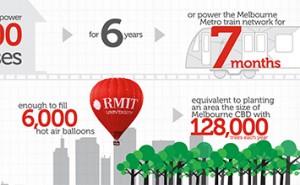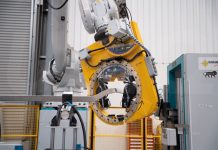RMIT University yesterday unveiled its $98 million Sustainable Urban Precincts Project (SUPP), aimed at cutting energy and water use as well as greenhouse gas emissions.

According to the media release by RMIT, the University spent the last two years working with Siemens and Honeywell to identify opportunities for energy and water savings in 90 buildings in the City, Bundoora and Brunswick.
The SUPP- the biggest project of its kind in the southern hemisphere- will reduce electricity use over eight years by an estimated 239 million kilowatts, thus reducing the greenhouse gas emissions by up to 30,000 tonnes. It will also cut water use by an estimated 68 million litres.
RMIT Vice-Chancellor and President, Professor Margaret Gardner AO, said the University was fully committed to promoting and integrating smart energy solutions and sustainability into their educational system.
“RMIT will not only contribute to the global striving for sustainability. We will also integrate this project into our education and research so that our students and staff can contribute to the process and learn from it,” she said.
“Honeywell’s smart energy solutions for RMIT include upgrades to its mechanical equipment, more energy-efficient lighting and water-harvesting technology. The University also gains an interactive learning and teaching platform for the benefit of students,” said Wayne Kent, Pacific General Manager of Honeywell Buildings Solutions.
Siemens Australia CEO Jeff Connolly said the project represented a major step toward transforming Australia into ecologically and energetically sustainable society and acknowledged RMIT’s leading role in the area.
“This is a great example of energy efficiency. Our team looked at all areas of the campus to see where our technology could maximise savings across water, lighting and the building management system, to create a highly efficient campus, both environmentally and economically,” Mr Connolly said.
The University informed that the feasibility studies to install co-generation and tri-generation technologies which will allow RMIT to generate part of its electricity demand on site are underway.




















